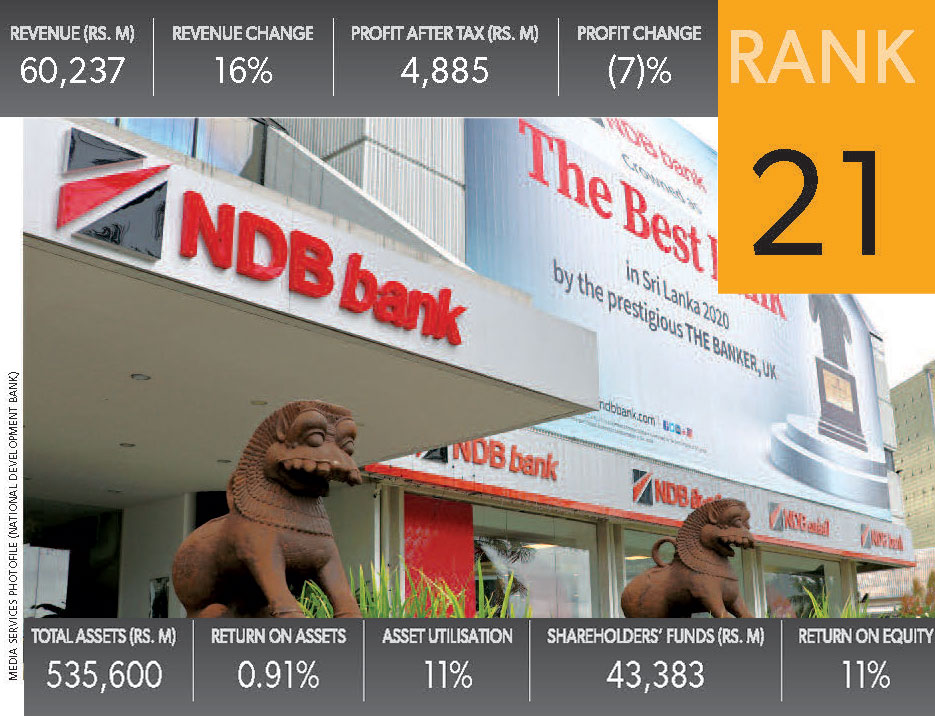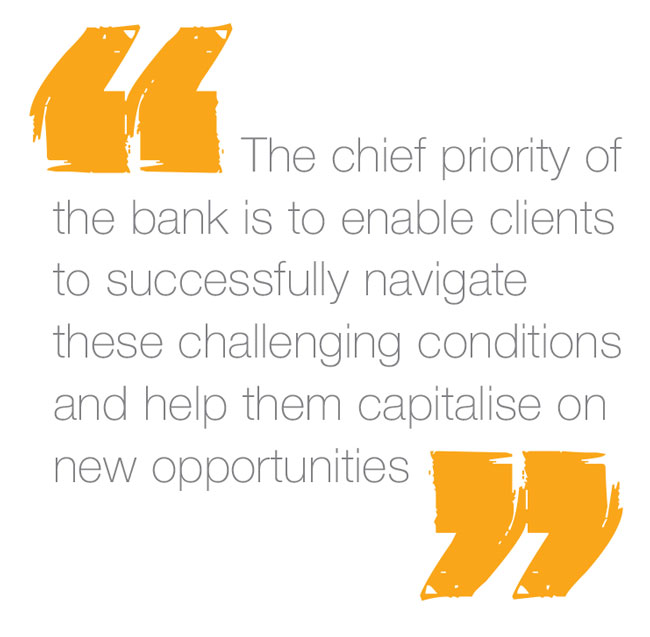

Address:
40, Navam Mawatha, Colombo 02, Sri Lanka.
Telephone:
+94 112448448
Email:
contact@ndbbank.com
Web:
https://www.ndbbank.com/
Q: How can businesses weather the impact of the COVID-19 cri- sis?
A: In any crisis, cash is king. As long as sufficient cash flows are generated to meet day-to-day requirements, busi- nesses will weather the storm.
The moratoriums mandated by the regulator and those granted by banks at their own discretion will enable busi- nesses to divert cash towards meeting salary payments and purchasing raw materials.
Since the impact of and recovery from the pandemic is not uniform globally, businesses must innovate and find more efficient ways of working, and be ready to capitalise on new opportunities arising from supply chain disruptions.
Companies and countries that are agile can slot into those sections of the supply chain that are not yet aligned or pick up opportunities where international companies are looking to diversify from traditional suppliers.
Q: Where do you stand on the debate about the pros and cons of work from home (WFH)?
A: During the crisis, WFH capabilities were a prerequi- site for business continuity but it has its advantages and disadvantages.
On the plus side, the daily commute to work, which for most people in Sri Lanka means a ride in congested pub- lic transport, is avoided. Employees save time and money, and the country saves on fuel due to less traffic. In addition, organisational overheads have reduced to some degree.
Whether Sri Lanka is geared for WFH is a relevant question. Most homes may not have the facilities con- ducive to effectively WFH and connectivity isn’t at desir- able levels. From a cultural perspective, the personal dis- cipline of employees and for managers to adapt to man- aging staff remotely will take time.


Q: How can banks support the economy with digital innovation in the aftermath of COVID-19?
A: COVID-19 has provided a much needed nudge for banks and the wider populace to embrace a digital approach in all aspects of life.
The need for the economy right now is to rev up con- sumer spending, leading to domestic production and employment.
The ease of making purchases and paying for them is a critical element of increasing consumption. This is where e-commerce and quick response (QR) code-based pay- ment mechanisms make a vast difference.
Banks such as National Development Bank (NDB) enable businesses to on board e-commerce sites and expand their markets.
The LANKAQR payment platform makes it easier for consumers to pay for purchases and is cost-effective for merchants due to lower transaction costs. Furthermore, digital innovation to provide supply chain and last mile financing enables merchants to increase their stocks, cre- ating a ripple effect across the value chain.
Banks have a major role to play in creating awareness for instance, developing all in one apps such as NEOS powered by NDB to create a ‘less cash’ society.
Q: What are the bank's medium-term priorities considering the prevailing corporate environ- ment?
A: The chief priority of the bank is to enable clients to successfully navigate these challenging conditions and help them capitalise on new opportunities.
NDB is forging ahead with digitalisation initiatives for front and back end processes, to meet customers’ chang- ing needs and provide tailored solutions to clients. We are aligning with the growth drivers of the economy to ensure that our full weight is behind the nation’s economic revival.
Q: And finally, what are the challenges facing the banking sector?
A: The main challenge is supporting clients and prevent- ing them from sliding into a non-performing situation – hence the provision of sustainable banking.
While the low interest rate regime will put pressure on net interest margins, this means that banks will have to invest in technology, and focus on cost management and agility to remain competitive in the future.

